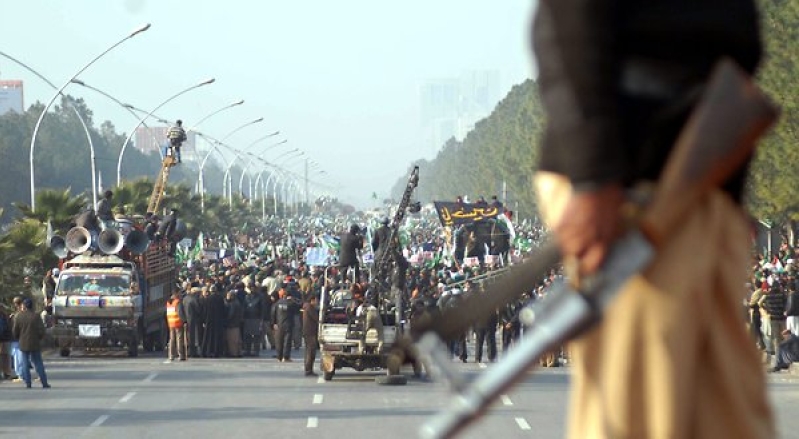
The Supreme Court of Pakistan, which has clashed repeatedly with Pakistan’s political leaders in recent year, ordered the arrest of the country’s Prime Minister Raja Pervez Ashraf and a number of officials over allegations of illegal payments for electricity generating projects when Ashraf was minister for water and power.
Last year, the Supreme Court ousted Ashraf’s predecessors, Yousuf Raza Gilani, in a contempt case related to old corruption charges against President Asif Ali Zardari.
The case relates to longstanding accusations that Ashraf took millions of dollars in kickbacks as part of a deal to build two electricity plants while serving as minister for water and power between March 2008 and February 2011.
The order to arrest Pakistan’s prime minister comes more than a year after two opposition figures filed a complaint in the rule Supreme Court against him. In March 2012, three months later, the court ruled that the power plants were illegal, ordered their closure, and instituted proceedings against Ashraf.
Morever, a large crowd of 20,000 people gathered near the national parliament, protesting against the government’s corruption, in central Islamabad.
Just ahead of the court’s announcement, Tahir ul Qadri, a Muslim cleric who wants Pakistan’s leaders thrown out in favor of a caretaker government to bring about electoral reform and flush out corruption, addressed thousands of people gathered, singling out the judiciary and the military as the only two institutions that he said were functioning in Pakistan.
The confluence of the two events was speculated that Pakistan’s powerful military was quietly supporting moves that would delay general elections that are due to take place this spring, most likely through the imposition of a military-backed caretaker administration.
Qadri has vowed not to leave a public square outside Parliament until their demands are satisfied.
However, the theories that link together the two players are not easy to reconcile. Over the last year, Justice Chaudhry has openly clashed with top generals, as part of his court’s bid to carve out its independence from both civilian and military rulers.
Justice Chaudhry has stressed that his court will not act as a rubber stamp to military rule, as previous courts have, and earlier on Tuesday he reportedly stressed the importance of holding elections by mid-May.






